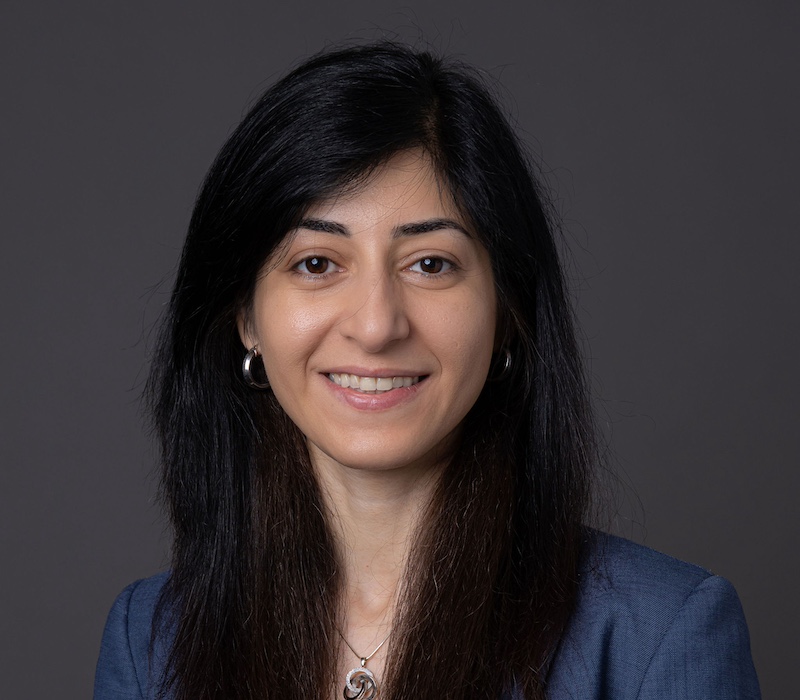Associate Professor Fatemeh Salehi, a Mechanical Engineer from the School of Engineering tells us i about her career, her roles at Macquarie and her goals.
1. How long have you been at Macquarie University and what brought you here?
It has been more than seven years now since I joined the School of Engineering at Macquarie University in 2018, and as well as an Associate Professor at the School of Engineering, I am now the Academic Lead for Sustainability at the Faculty of Science and Engineering. Previously, I was the Deputy Director of the Sustainable Energy Research Centre at Macquarie University and the Outreach and Communication Coordinator at the School of Engineering.
 I love research and enjoy teaching and working with my students. The university offers a dynamic yet flexible environment that perfectly aligns with my passion for research and education. This environment allows me to take on innovative research projects while also dedicating time to inspire and mentor the next generation of engineers. I particularly value the opportunity to create an inclusive and supportive space for all students and staff. I believe that fostering a diverse and welcoming environment is essential for academic and personal growth, and I am very glad that the university is committed to building such a positive and safe environment for everyone.
I love research and enjoy teaching and working with my students. The university offers a dynamic yet flexible environment that perfectly aligns with my passion for research and education. This environment allows me to take on innovative research projects while also dedicating time to inspire and mentor the next generation of engineers. I particularly value the opportunity to create an inclusive and supportive space for all students and staff. I believe that fostering a diverse and welcoming environment is essential for academic and personal growth, and I am very glad that the university is committed to building such a positive and safe environment for everyone.
2. You were recently appointed the FSE Academic Lead, Sustainability. What does the role involve and what are your goals in the coming year?
I lead the development and coordination of sustainability initiatives across the faculty, which are well aligned with Macquarie University's sustainability KPIs and the FSE Strategic Framework 2022–2026. My responsibilities include providing advice, evaluations, reviews, and recommendations to the Executive Dean, Faculty Executive Committee, and Faculty Board on the development and implementation of sustainability strategy and initiatives within the Faculty. I also oversee the allocation of Faculty resources with consideration for sustainability aspects and ensure the integration of sustainability components into the Faculty strategy. This involves promoting sustainability, empowering our students, and embedding the United Nations Sustainable Development Goals across our activities in research, teaching, and operations.
3. You’ve been nominated for a NSW Tall Poppy Award, you’ve contributed to the Standards Australia Hydrogen Working Group and recognised in the NSW Hydrogen Strategy, you’re on the Blue Economy CRC scientific advisory board and you’re a 2021 Fulbright alumni.
Give us a short overview of your research, including why your work has been so impactful.
My expertise is in the development of physical models for computational modelling of heat and mass transfer in different applications. The primary objective of my research is to create efficient predictive computational models that enhance our understanding of multi-scale and multi-physics flows. My research generates new insights that advance cost-effective energy solutions, promoting smarter and more sustainable energy flow. My team focuses particularly on computational modelling and optimisation techniques to safely and efficiently scale clean fuels like hydrogen.
The outcomes of my research have made positive climate impacts and increased fuel security in Australia by reducing our dependency on fossil fuels. For instance, our work on hydrogen safety has helped industry partners mitigate potential incidents in hydrogen infrastructure, preventing catastrophic consequences. As a member of the Standards Australia Hydrogen Working Group, I have contributed to enhancing the safety and reliability of hydrogen systems. These efforts directly influence hydrogen production and delivery costs, as well as public confidence in hydrogen technologies. My contributions to hydrogen applications and safety were recognised in the NSW Hydrogen Strategy published by the NSW Government in 2021.
4. Being a science communicator is an important part of your work. What drives you?
Science and engineering activities were a big part of my childhood. My brother and enjoyed building things together and understanding how they functioned. So, I am very passionate about promoting science and engineering within the community. As the director for Outreach and Communication at the School of Engineering, I led numerous outreach activities aimed at showcasing the benefits of low-carbon engineering solutions in various events. In 2023, we actively participated in 14 outreach events which was demanding but incredibly fulfilling.
I take particular joy in engaging with young girls and empowering them. They have brilliant ideas and care about the environment and building a better society, yet they often lack familiarity with engineering and its great impact. Witnessing the transformation in their interests following our outreach events is absolutely rewarding and inspiring.
5. What are you focusing on for the rest of 2024?
In my role as the FSE Academic Lead for Sustainability, my primary focus for the remainder of 2024 is on advancing the Sustainability Action Plan. A key initiative within this plan involves mapping FSE courses and units to the United Nations Sustainable Development Goals and developing a sustainability actions matrix to embed sustainability into the curriculum. This initiative aligns closely with the overarching goals of the Macquarie University Sustainability Strategy.